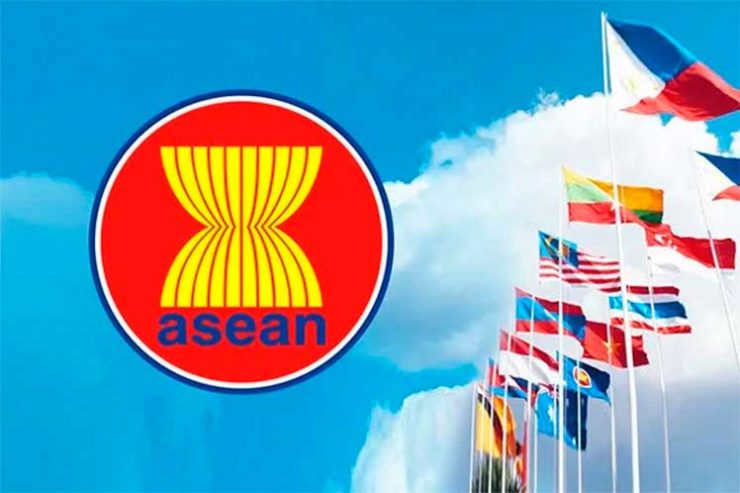
Today’s global geopolitics is more about great power competition than any other thing. It is evident from the ongoing military conflict in Eastern Europe, and it is evident from the ways in which the US has been trying to build a global coalition against China for the past many years now. So far, Washington has achieved no substantial success. While Washington, presuming that there is a lot of potential for conflict in the region and the countries are eager to find a powerful ally against China, hoped that it will be able to wean the Pacific nations – including the Association of Southeast Asian Nations (ASEAN) – to its side, it has not happened. Recent developments indicate that it has never been more unlikely to happen in the near future than today. As it stands, most Pacific nations have learned to adapt to the ongoing great power competition, not in terms of choosing, or having to choose under pressure, one side over the other, but in terms of playing both sides to extract maximum advantage. Pacific nations are playing a long game, one that Washington may not be very enthusiastic about, but is certainly the one that serves them.
New Zealand, for instance, is one country playing this game very vividly. In early June, Prime Minister Chris Hipkins visited China to “boost economic ties … reaffirm our close economic relationship by supporting businesses (to) renew their connections with Chinese counterparts and helping grow new ones to support New Zealand’s economic recovery.” Now, these remarks directly challenge the US politics of “decoupling” from China, insofar as New Zealand is all about coupling.
Days later, Hipkins also attended the NATO summit as part of NATO’s extended arm in the Pacific, i.e., the alliance’s four Indo-Pacific partners including New Zealand, Australia, Japan, and South Korea. Soon after his return from the summit, Hipkins, while referring to “China’s rise”, said that “our region is becoming more contested, less predictable, and less secure. And that poses challenges for small countries like New Zealand.” Hipkins’ projections about potential instability become a gateway for smaller countries to develop security ties with the US and NATO and achieve security stability. But in the absence of any comparable programme of economic partnership with the West, these countries’ ties with China become a source of economic stability. Hence, the long game of playing the great power competition to their best possible advantage. Instead of choosing a clear side, New Zealand, like many other countries in the region, is doing interest-based politics, i.e., ‘looking’ East and West for the specific purposes they serve. This pattern is region-wide.
On the 15th of July, when ASEAN foreign ministers met in Jakarta for the 56th ASEAN Foreign Ministers’ meeting, Indonesian President Widodo told them that ASEAN “cannot be a competition, it can’t be a proxy of any country [i.e., China or USA].” The Indonesian Foreign Minister said that ASEAN cannot “be another battleground” [i.e., just like Ukraine is today for the US and NATO, or just Taiwan may become against China for the US and NATO]. Again, this message from ASEAN actually rebuffs the message that the US Secretary of State brought to ASEAN very recently: that the ASEAN states must be free to choose partners. Yet, the ASEAN nations reiterated their openness to engaging with the US and developing trade and economic ties, while maintaining ties with China.
A key reason why the US is unable to find any meaningful success in ASEAN, or in the wider Pacific region, is that it continues to grossly underestimate the depth and the strength of China’s presence in the region and the trade ties it has developed over the past few decades. This strength, despite Washington’s pressure, is growing, as the Pacific nations continue to rise as powers capable of navigating complex geopolitical scenarios autonomously. ASEAN, for instance, does not deny that they do not have any territorial conflict with China. There certainly is. Where they differ from the US is in ways of managing that conflict.
Washington favours confrontation over negotiations, and it aims to use the scenario to make ASEAN dependent on US military support. Some countries, such as The Philippines, certainly, have deep military ties with the US. However, while these military ties allow Manila to develop its military strength – which almost all states in the world need – it does not mean that Manila is not open to non-military – and non-confrontational – ways of managing its ties with China.
In fact, in the second week of July, ASEAN and China adopted Guidelines to Implement a Code of Conduct in the South China Sea. Negotiations for the code have been going on since 2002. And, despite many US attempts to ignite a stand-off in the region through its intervention, the guidelines have been adopted, leading the region one crucial step closer to adopting the actual framework. As the Indonesian Foreign Ministry said in a statement, “This year, the relationship between the two sides made a long history, namely the understanding of guidelines to strengthen effective and substantive CoC negotiators, the understanding of joint development on a single COC draft, and the implementation of the People’s Republic of China’s (PRC) 20-year agreement on cooperation and cooperation.”
Could we ever expect a different outcome? It would have been naïve to have a different expectation. Given the depth of China-ASEAN trade, mutually agreed frameworks are the only logical outcome that serves all parties. Since 2020, ASEAN has been China’s biggest trading partner. In mid-2023, bilateral trade reached a whopping US$ 447.3 billion. Why would China, or even ASEAN, want to disrupt this situation? Washington clearly miscalculated, which is why its attempts at expanding the politics of “decoupling” globally are actually backfiring now in the face of more sophisticated methods that ASEAN is deploying.
Salman Rafi Sheikh, research-analyst of International Relations and Pakistan’s foreign and domestic affairs, exclusively for the online magazine “New Eastern Outlook”.